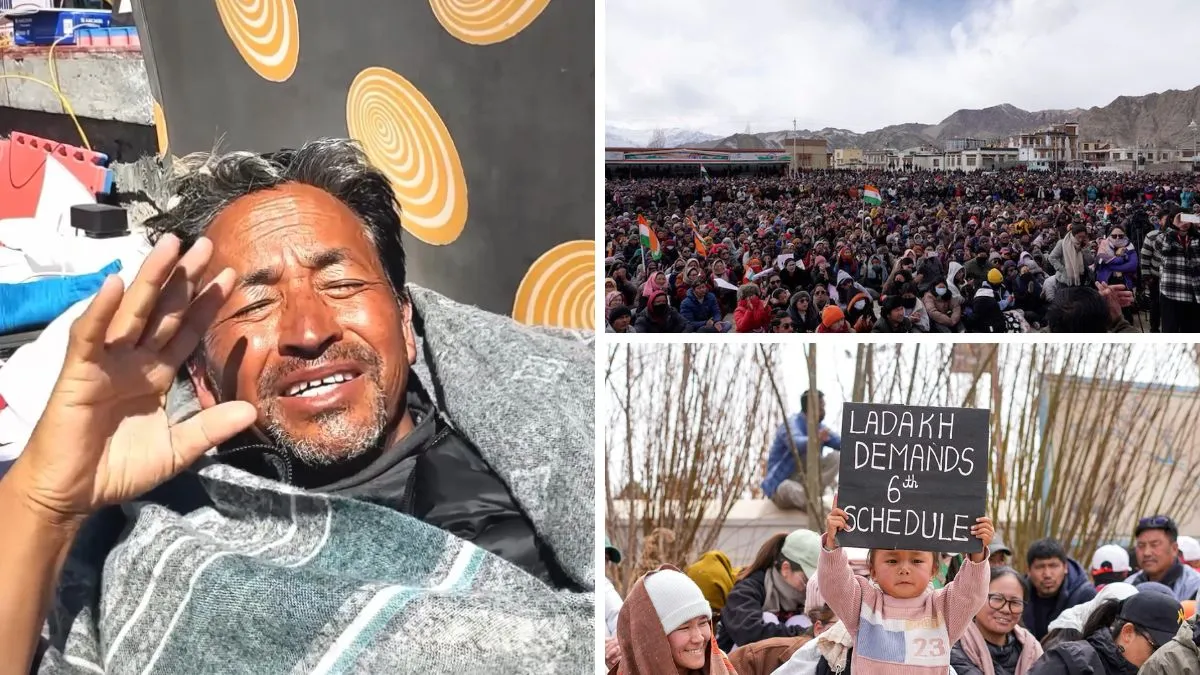- By Kamal Kumar
- Tue, 26 Mar 2024 08:07 PM (IST)
- Source:JND
Sonam Wangchuk Climate Fast: After a 21-day-long climate fast, noted Ladakh-based environmentalist and educator Sonam Wangchuk ended his hunger strike on Tuesday in evening. Sonam, along with thousands of protesters, was sitting on a fast, surviving over only water and salt, while demanding statehood for the Ladakh and protection of the fragile Himalayan ecology.
"I will continue to fight for constitutional safeguards for Ladakh and people's political rights," Wangchuk said as he ended the hunger strike.
Wangchuk had started his fast on March 6, following the failure of the talks between Ladakhi leadership and the Home Ministry. At the beginning of the fast, Sonam had said that he would take a fast for 21 days to press the central government to fulfil the promises it made to the people of the union territory.
As his fast entered the last day today, deterioration was seen in his health. Wangchuk, who was posting video updates of his protest every day, asked the centre to show character and meet the demands of the people of Ladakh in a message earlier today. In the video, he could be seen showing a frozen glass of water while saying that 350 people have joined him in his fast overnight while staying at as low a temperature as -10 degrees celsius.
"We are trying to remind and awaken the consciousness of our Prime Minister (Narendra) Modi and Home Minister Mr Amit Shah to safeguard the fragile ecosystem of the Himalayan mountains in Ladakh and the unique indigenous tribal cultures that thrive here," he said in the video.
"We do not want to think of PM Modi and Amit Shah ji as just politicians, we would rather like to think of them as statesmen but, for that, they will have to show some character and farsightedness," he added.
Ladakh, the northernmost part of the country, harbours a richness of natural resources and wildlife. The plateau is home to countless small and big rivers, mighty mountains clad with white-ice glaciers, serene lakes and rich bio-diversity. The valleys and mountains of Ladkah are also home to indigenous people with their rich cultural heritage.
Wangchuk alleges that without appropriate constitutional safeguards, the natural resources of the region will fall prey to the industry and mining lobby which will exploit the already fragile region with abundant greed. He has also criticised the local government for imposing a 13-gigawatt project without consulting locals.
(With inputs from an earlier story)


